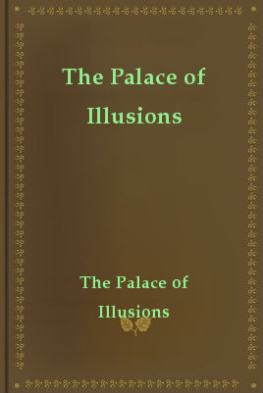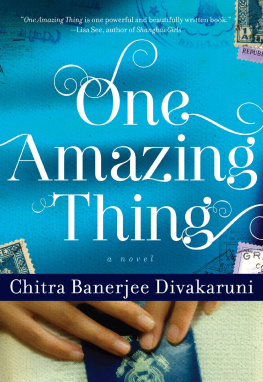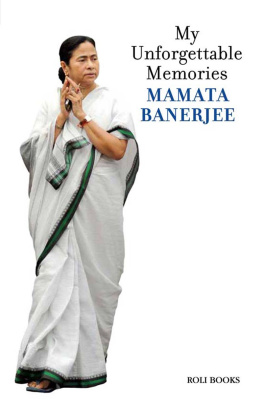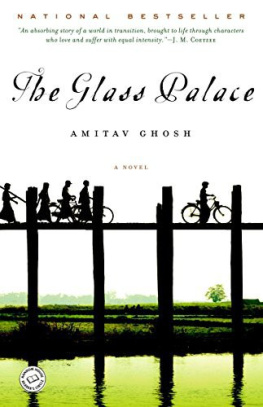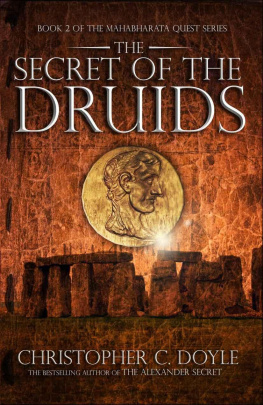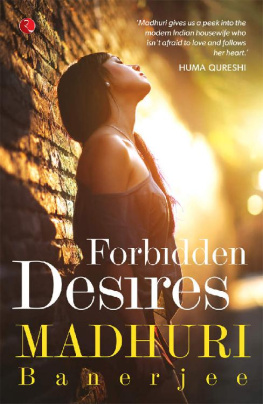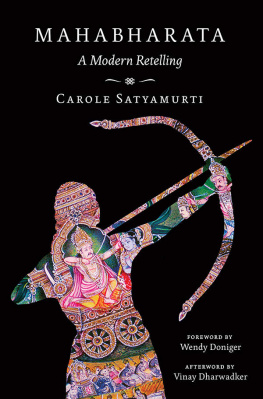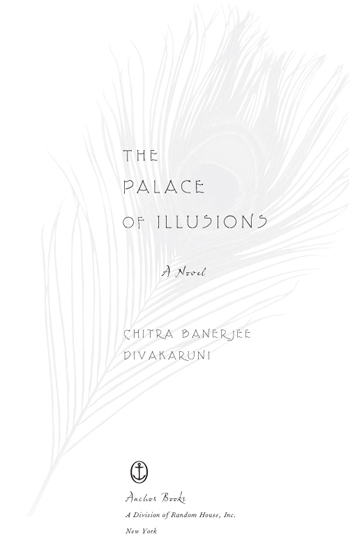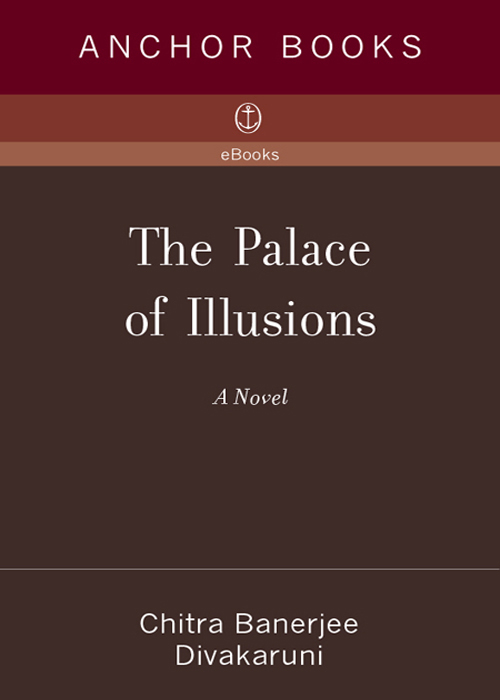
Acclaim for Chitra Banerjee Divakaruni's
An exotic escapist tale. With The Palace of Illusions Divakaruni has proven that her storytelling talents put her right up there with the best.
The Miami Herald
Divakaruni, renowned for her skillful take on women's relation ships, creates a very believable character in Panchaali, a queen who must choose between making history or following her true desires.
The Oregonian
A lyrical tale imbued with the scent of ancient incense yet rooted in modern day relevancy.
BookPage
Full of wonders. Draupadi is a complex, impassioned heroine with a wry sense of humor, and the women who surround her are fierce and uncompromising.
The Onion A.V. Club
Introduces Western readers to an ancient mythologythis time with complicated, strong, memorable heroines.
San Antonio Express-News
Divakaruni has taken a male-centered story and breathed new life into its female characters, giving us a rich tale of passion and love, power and weakness, honor and humiliation. Entertaining, insightful, and suspenseful.
The Union
A novel look at [an] ancient Indian epic.
New York Post
The Palace of Illusions is not only an exciting, action-packed read, but also an educating one, and will likely encourage those curious enough to delve into the original Mahabharata.
The Toronto Star
As grand and tragic as the epic poems by Homer. Divakaruni's best work yet.
Bookreporter
[Divakaruni's] women are desperate, wonderful, complicated, lyrical, memorable, even magical. Daring.
Vogue India
The Palace of Illusions is unique, amongst Divakaruni's very best. A creative, illuminating feminist work that compels us to re examine the original text.
India Currents
Imaginative. Poignantly told.
Hindustan Times
Chitra Banerjee Divakaruni
Chitra Banerjee Divakaruni is the author of the bestselling novels Queen of Dreams, The Mistress of Spices, Sister of My Heart, and The Vine of Desire, and of the prize-winning story collections Arranged Marriage and The Unknown Errors of Our Lives. She lives in Houston, Texas, and teaches creative writing at the University of Houston.
www.chitradivakaruni.com
Queen of Dreams
The Vine of Desire
The Unknown Errors of Our Lives
Sister of My Heart
The Mistress of Spices
Arranged Marriage
Poetry
Leaving Yuba City
Black Candle
For Young Readers
The Mirror of Fire and Dreaming
The Conch Bearer
Neela: Victory Song

Abhay
Anand
Murthy

Who is your sister? I am she.
Who is your mother? I am she.
Day dawns the same for you and me.
From Innana's Journey to Hell,
3rd Millennium BCE,
translated from Sumerian by N. K. Sandars
My deepest thanks to:
My agent, Sandra Dijkstra, and my editor,
Deb Futter, for guidance
Antonya Nelson and Kim Chernin
for encouragement
My mother, Tatini Banerjee, and my mother-in
law, Sita Divakaruni, for good wishes
Murthy, Anand, and Abhay for love
Baba Muktananda, Swami Chinmayananda, and
Swami Vidyadhishananda for blessing.
Like many Indian children, I grew up on the vast, varied, and fascinating tales of the Mahabharat. Set at the end of what the Hindu scriptures term Dvapar Yug or the Third Age of Man (which many scholars date between 6000 BCE and 5000 BCE), a time when the lives of men and gods still intersected, the epic weaves myth, history, religion, science, philosophy, superstition, and statecraft into its innumerable stories-within-stories to create a rich and teeming world filled with psychological complexity. It moves with graceful felicity between the very recognizable human world and magical realms where yakshas and apsaras roam, depicting these with such exquisite surety that I would often wonder if indeed there was more to existence than what logic and my senses could grasp.
At the core of the epic lies the fierce rivalry between two branches of the Kuru dynasty, the Pandavas and the Kauravas. The lifelong struggle between the cousins for the throne of Hastinapur culminates in the bloody battle of Kurukshetra, in which most kings of that period participated and perished. But numerous other characters people the world of the Mahabharat and contribute to its magnetism and continuing relevance. These larger-than-life heroes, epitomizing inspiring virtues and deadly vices, etched many cautionary morals into my child-consciousness. Some of my favorites, who play prominent roles in The Palace of Illusions, are: Vyasa the sage, at once the composer of the epic and a participant at crucial moments in the action; Krishna, beloved and inscrutable, an incarnation of Vishnu and mentor to the Pandavas; Bheeshma, the patriarch who, bound by his promise to protect the Kuru throne, must fight against his beloved grandsons; Drona, the brahmin-warrior who becomes teacher to both the Kaurava and Pandava princes; Drupad, the king of Panchaal, whose desire for vengeance against Drona activates the wheel of destiny; and Karna, the great warrior, who is doomed because he does not know his parentage.
But always, listening to the stories of the Mahabharat as a young girl in the lantern-lit evenings at my grandfather's village home, or later, poring over the thousand-page leather-bound volume in my parents' home in Kolkata, I was left unsatisfied by the portrayals of the women. It wasn't as though the epic didn't have powerful, complex women characters that affected the action in major ways. For instance, there was the widowed Kunti, mother of the Pandavas, who dedicates her life to making sure her sons became kings. There was Gandhari, wife of the sightless Kaurava king, who chooses to blindfold herself at marriage, thus relinquishing her power as queen and mother. And most of all, there was Panchaali (also known as Draupadi), King Drupad's beautiful daughter, who has the unique distinction of being married to five men at the same timethe five Pandava brothers, the greatest heroes of their time. Panchaali who, some might argue, by her headstrong actions helps to bring about the destruction of the Third Age of Man. But in some way, they remained shadowy figures, their thoughts and motives mysterious, their emotions portrayed only when they affected the lives of the male heroes, their roles ultimately subservient to those of their fathers or husbands, brothers or sons.


